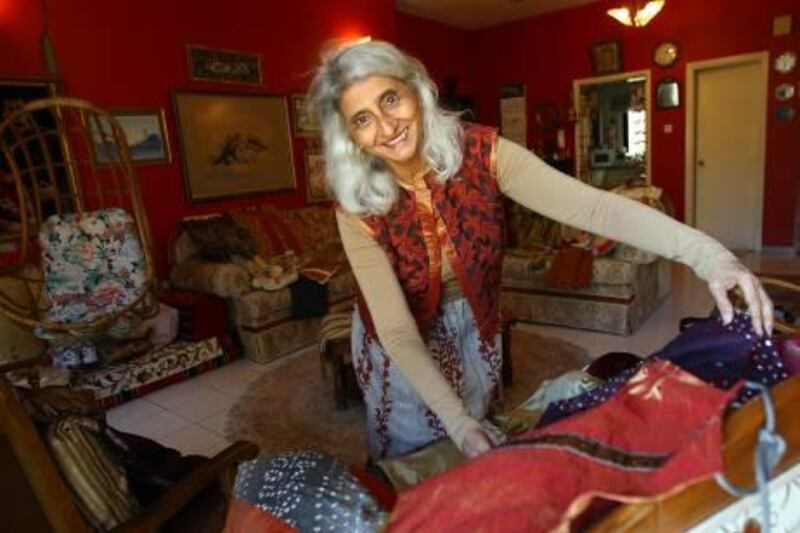DUBAI // Tasleem Karmali turns rags into the riches of charity and conservation.
Mrs Karmali, a former teacher, works scraps of silk, linen and velvet that were headed for the landfill into trendy clothes that raise funds for the needy.
Her constant appeals to Dubai boutiques to recycle unused fabric have prompted several stores to send her large bags filled with swatches of cloth snipped off by tailors.
"I get a sense of peace when I'm sewing and producing something new and nice," says Mrs Karmali, who used to teach children with special needs.
"It feels good to give back and to know that my dresses help the underprivileged. It's also so important to save, whether it's energy, electricity or cloth that can be reused."
Boutique owners say her work is a blessing that helps them to join an environmentally friendly cause.
"It's an excellent idea because, although everyone wants to go green, we throw out a lot that can be recycled," says Huti Khajotia, the owner of a Bur Dubai boutique.
"Fabric, whether polyester or silk, is not environmentally friendly. I'm at ease knowing these are being used rather than dumped."
Mrs Karmali is one of four designers invited by the Navjyoti India Foundation, a non-government organisation, to make outfits for about 130 children of Indian labourers, farmers, villagers and prison inmates.
The children live in villages and urban areas of Delhi and Haryana and are among 6,500 whose education, vocational skills and health care are handled by Navjyoti.
The organisation was founded 24 years ago by Kiran Bedi, who was India's first and highest-ranked female police officer.
The children will take to the catwalk at a function in New Delhi on Saturday as part of a programme to build their confidence and self-esteem.
"The focus is primarily on the kids having a good time and giving them exposure they would not normally get," says Ruchika Nigam, the advocacy manager at Navjyoti.
"We want them to realise they are no less than children from the mainstream and they too can be confident."
Mrs Karmali says her designs, to be worn by 27 children, will convey a powerful message of the need to recycle.
The link with Navjyoti began in April. After a fund-raiser organised by Ms Bedi in Dubai, Mrs Karmali pledged two sewing machines for women who are also beneficiaries of the foundation.
This matched her goal to "recycle, sew, serve" that she adopted in 2009.
She and 10 other women stitched 120 garments for a show at the India Club in Dubai, where women and children modelled the recycled clothes they had bought.
The Dh8,000 the event raised bought air tickets home for two labourers and sewing machines for a Dubai hospital's rehabilitation centre.
Back at her Karama home, Mrs Karmali prepares for her latest project with Navjyoti.
She sorts through the clothes, with measuring tapes and spools of thread lying near her sewing machine alongside lists of measurements.
The sofas in her living room are draped with rust-and-gold blouses and linen skirts for the girls, and smart silk jackets for the boys.
Most garments were put together using seven or eight different patches of cloth.
"The smaller the scraps, the greater the challenge," says an animated Mrs Karmali. "It's not just about joining two pieces of cloth, it's about design. I just match the cloth and everything falls into place."
Citations and certificates acknowledging her charity work are tucked away in the living room, alongside photographs of her husband and two daughters.
Well wishers who intend to donate for a good cause have become regulars at her exhibitions in Dubai.
"Everyone wants to do something for the less fortunate but nobody ends up doing it," says Swati Prabhudesai, who modelled clothes with her daughters at the India Club function. "I think her concept is brilliant."
Having overcome their initial apprehension about whether the clothes were wearable, buyers now snap up Mrs Karmali's outfits.
"The first time I was totally astonished at how well she produces the clothes," says Shamim Riyaz, a regular buyer.
"It's like stuff you get in a boutique. You would never know it's from scrap. It's because of the effort she puts in; she does it with a heart."







